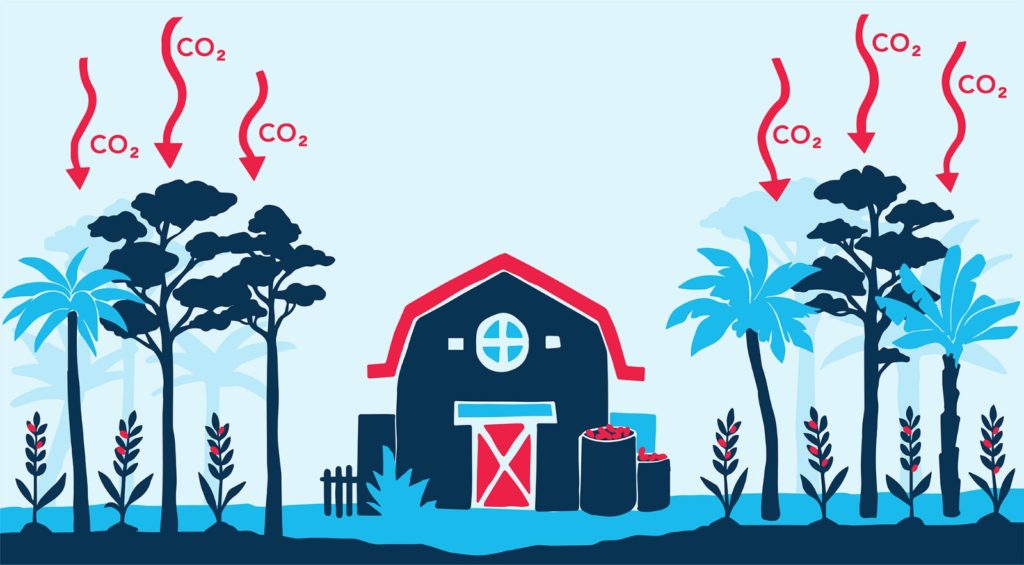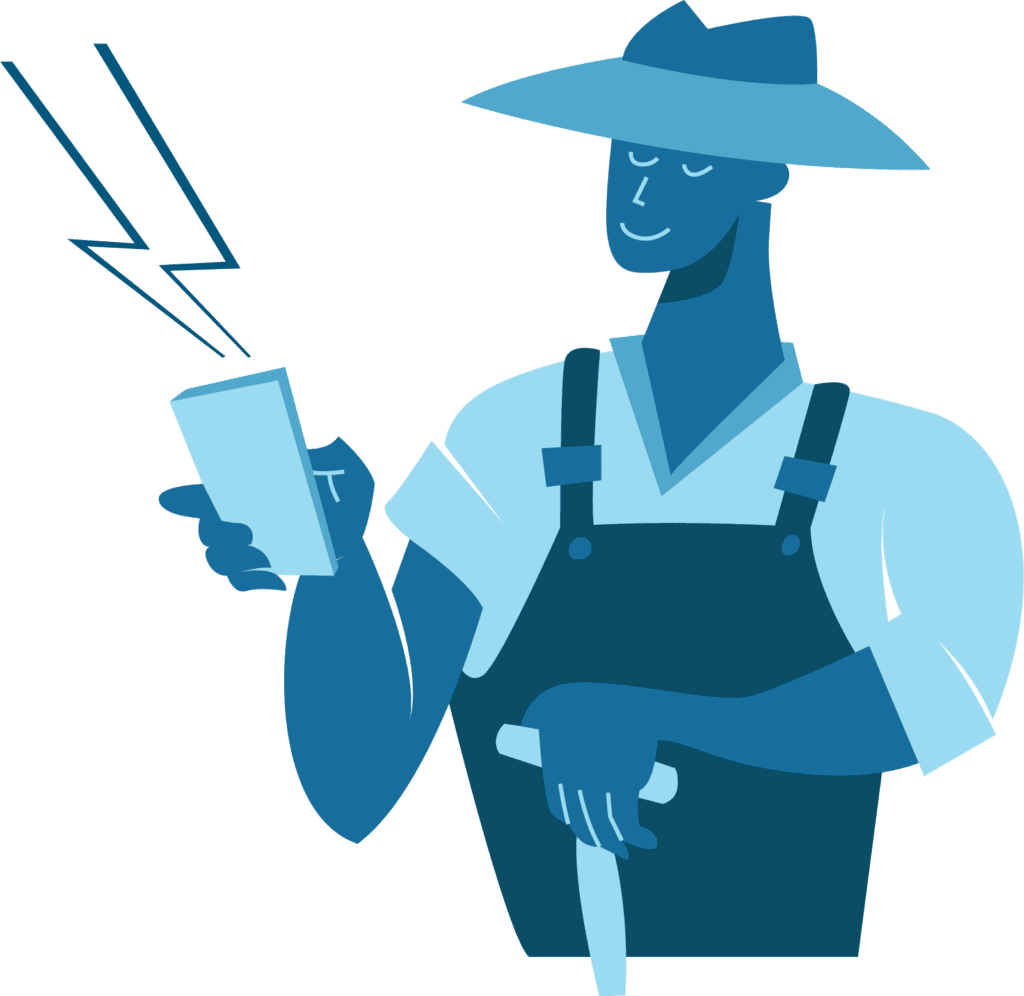DREAM FUND
A very generous fund provided by the Dutch Postcode Lottery (12,7 million euros!) allows Fairfood, Solidaridad, Cool Farm Alliance, &ranj, and Rabobank to work on a rather ambitious, wonderful dream: empower farmers to become climate heroes instead of climate victims. Ultimately, we want farmers to be able to tap into the carbon offset market, using their farm to plant trees that capture CO2, allowing them to sell so-called carbon credits to companies looking to offset their emissions.

But there’s more to this planting of trees. The trees don’t just capture CO2, they also provide shade for other crops, offer new sources of income (say the farmer plants mango or banana trees), and help keep the soil healthy. Trees may also protect other crops, while their roots keep the soil in place. Imagine the difference between increasingly frequent heavy rain showers hitting a farm with only coffee bushes, or a farm that practices agroforestry…
Some, but not all of the big hairy audacious goals of this 5-year project:
farmers from Latin-America and Africa practice climate smart agriculture
By 2044, 19,5 million tons of CO2 has been captured, equal to the emissions of 1,5 million Dutch people in 2020
RECLAIM SUSTAINABILITY! CONTINUED
If 2021 was the year of putting our coffee and cocoa pilots in motion (see Chapter 2), 2022 will be all about absorbing and sharing early lessons learned from these projects. Moreover, at Fairfood we are committed to spreading the word, to ultimately inspire more corporate actors and provide insights they can use on their path to transparent supply chains.
This sharing of lessons learned and best practices is done, of course, based on evidence from the field. An inception report with initial findings on the impact of paying farmers an above-market price is in the works. This report will contribute to a comprehensive policy analysis undertaken by the consortium, which will provide the basis for a policy brief exploring the economic, political, and structural barriers that impede the fair distribution of value to smallholders, as well as identifying solutions to help solve them. This is, of course, only one outcome of the work we will do in 2022. Keep an eye out on this page to follow our progress.
THE LIVING WAGE & INCOME LAB
After a year-long hiatus due to the pandemic, we are bringing back the Living Wage & Income Lab with a new format and fresh topics. Developed in partnership with Hivos, the Lab is now hosted exclusively by Fairfood as part of our mission to realise poverty-free value chains with corporate action. More specifically, the Lab fosters dialogue and encourages more companies to commit to tackling low wages in supply chains as part of their sustainability goals. Three sessions are scheduled for the coming year, focusing on cocoa and coffee, the first taking place in February led by Tony’s Chocolonely, Eosta, Fairtrade Original, and OXFAM, who will share concrete examples.
TOTAL PRODUCE
If you eat fruit and vegetables, you are dealing with a company called Total Produce. This producer and distributor deals in over 200 kinds of fruits and vegetables and supplies to retailers, wholesalers, and food service companies in over 20 countries.
They recognise that being a big company comes with big responsibility, and improving transparency to become more socially responsible is now on the table. In 2021, we put our heads together to give shape to a new partnership. Our starting point: citrus from Eastern Cape. With the new harvest approaching, you can expect to hear more about our joint effort to raise South Africa’s farmers’ voices in global value chains soon.
A LIVING INCOME STUDY FOR ETHIOPIAN COFFEE FARMERS
As part of our partnership with Trabocca, we commissioned the Royal Tropical Institute (KIT) to study the cost of producing coffee in the Ethiopian Guji region. Next, researchers from the Global Living Wage Coalition determine the living income benchmark. Using the internationally recognised Anker Methodology, this benchmark tells us what an average rural family needs to earn to be able to live a decent life – meaning they’re able to afford food, water, housing, education, health, transportation, clothing, and other essential necessities, including savings for unexpected events.
Once finished, this living income benchmark will be made publicly available as a starting point for other businesses operating in the area. With Dutch retailers committing to paying living wages for their bananas and Germans for all their agricultural supply chains, perhaps we have momentum on our side and benchmarks like these will become a standard part of due diligence for the coffee sector!
OUR THEMATIC FOCUS
The COVID-19 pandemic has impacted farmers and food workers around the globe in many different ways, exacerbating existing human rights issues, creating new levels of vulnerability for the most at-risk groups, and aggravating poverty-related issues. In 2022, our advocacy efforts will focus on highlighting the importance of due diligence and quality data, to ensure farmers’ resilience is the new norm in global food value chains. Through our work, we keep moving towards greater supply chain transparency to enable decent working conditions to lay the foundation for a sustainable transition.
And now, with a clear link to how this positively translates to a healthier planet, thanks to our Dream Fund project. Since sharing knowledge and inspiring companies to act is part of our mission, you can expect to read the key findings and learnings from our traceability pilots in working papers, research and easily accessible content on our website soon.



